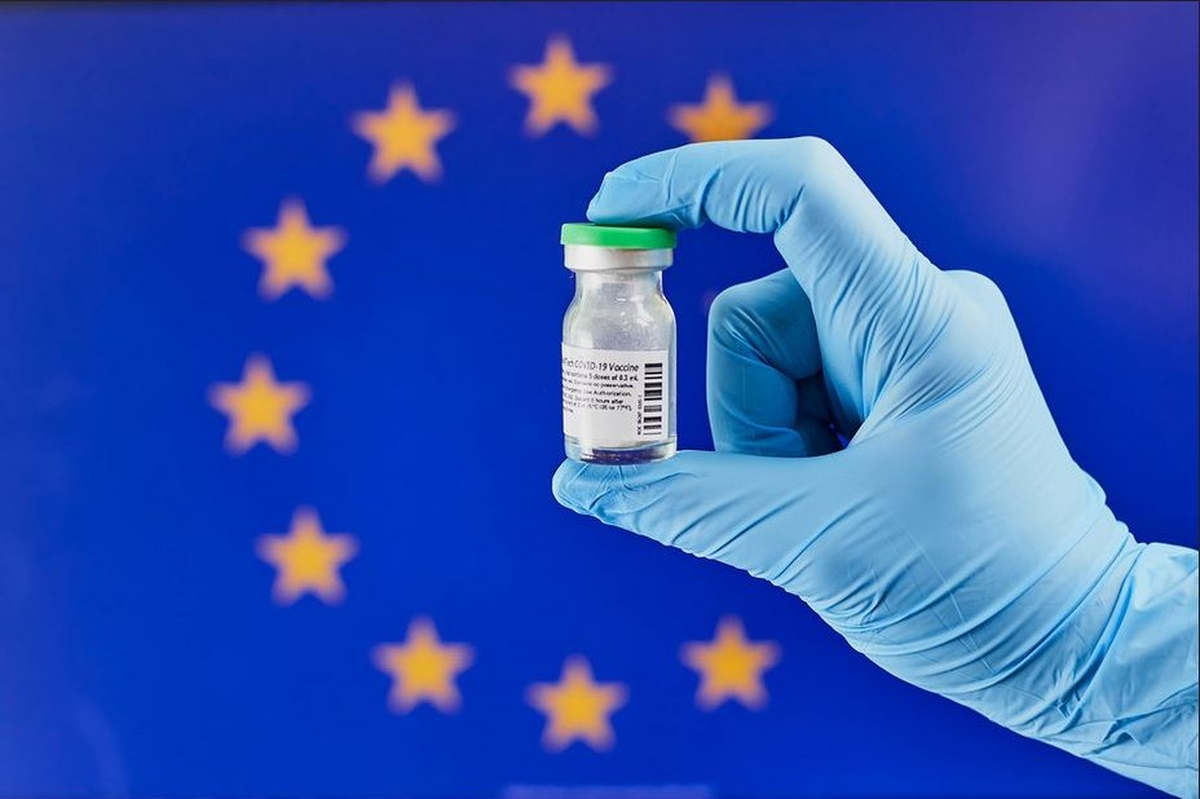Why does the President of the European Commission, Ursula von der Leyen, refuse to reveal the content of her exchanges with the head of Pfizer for the purchase of vaccines? An investigation has been opened.
We knew that the European Union was not an example of democracy. We now know that some of its decisions are totally opaque. An example is the purchase of anti-Covid-19 vaccines from big pharmaceutical companies.
On September 16, 2021, Emily O’Reilly, Ombudsman of the European Union, sent a letter to the President of the European Commission, Ursula von der Leyen, to ask her to explain the messages she exchanged with the CEO of Pfizer, Albert Bourla, which were revealed by the New York Times in April 2021. And whose content the Commission refuses to reveal.
“I received a complaint from X against the European Commission. It concerns public access to the text messages relating to the conclusion of a purchase agreement for a COVID-19 vaccine earlier this year, as reported by the New York Times. In the event of a refusal of public access to documents under Regulation 1049/2001, applicants may turn to the Ombudsman. In this context, I am opening an investigation into this complaint (…) I would be grateful if the Commission representatives concerned would contact Ms. Michaela Gehring, who is the investigator in charge of this investigation, to agree on the modalities of the meeting, which should take place before October 8, 2021, if possible.”
Following a complaint, we have opened an inquiry into @EU_Commission's refusal to grant access to text messages between @vonderleyen and a multinational's CEO about a #COVID19 vaccine contract.
[1/2] pic.twitter.com/jphrMjFdnA
— European Ombudsman (@EUombudsman) September 17, 2021
How many doses have been pre-ordered?
Recall that the European Commission has committed nearly three billion euros to reserve 4.5 billion doses of vaccine from six laboratories. In mid-June 2020, in the midst of the pandemic, the European Union put in place a vaccine strategy against Covid-19. The aim was to ensure “sufficient vaccine production” for Europeans and “accelerate the development, authorization and availability of vaccines, while respecting the quality, safety and efficacy standards applicable to vaccines.”
The strategy is based on the advance purchase agreement (APA) principle. In other words, it is new money made available to laboratories. In return, the laboratories undertake to deliver the necessary doses to the 27 European countries.
Thus, the European Commission has signed contracts with seven laboratories or pharmaceutical groups, for a total of 4.575 billion potential doses. Here are the details recalled by the website toute l’Europe.
- August 7, 2020: contract with AstraZeneca (whose candidate vaccine is 70% effective) for 300 million doses (plus 100 million additional doses if needed).
- September 18, 2020: second contract with Sanofi-GlaxoSmithKline (GSK) for 300 million doses.
- October 8, 2020: contract with Janssen Pharmaceutica, the Belgian subsidiary of the American laboratory Johnson & Johnson, for 200 million doses, with a possible second delivery of 200 million additional doses.
- November 11, 2020: new contract with Pfizer/BioNTech (vaccine candidate then 90% effective) for 200 million doses, plus 100 million in option. On January 8, to ensure the supply of member states, the European Commission again pre-ordered 200 million doses, plus 100 million optional doses.
- November 17, 2020: contract with the German laboratory CureVac for 235 million doses and up to 180 million additional doses if needed.
- November 25, 2020: contract with the American company Moderna (whose clinical tests indicate 94.5% effectiveness) for 160 million doses.
- May 20, 2021: new contract with Pfizer/BioNTech for an additional 1.8 billion doses for the years 2022 and 2023
August 4, 2021: new contract with the American laboratory Novavax, for a stockpile of 100 million doses, plus an additional 100 million.No legal liability
At what price? The Commission does not wish to communicate on this matter. However, some indiscretions have made it possible to know the purchase price of a dose of these different vaccines:
- AstraZeneca: 1.78 euro
- Johnson & Johnson: 7 euros
- Sanofi/GSK: 7.56 euros
- Curevac: 10 euros
- Pfizer/BioNTech: 12 euros
- Moderna: 14.70 euros
- Novavax: price unknown
Today, only four vaccines are known to be licensed in Europe: Pfizer/BioNTech, Moderna, AstraZeneca and Johnson & Johnson. They have been granted conditional marketing authorization (CMA).
Negotiations on legal liability in case of adverse effects of these vaccines are unclear. The major laboratories have refused to accept any responsibility for the side effects of vaccines. Nor is Europe responsible for phenomena that it does not control.
No transparency
The contracts signed between the European Commission and the pharmaceutical laboratories, which were signed in defiance of the tender procedures, are surrounded by the most complete opacity. In the name of the sacrosanct secrecy of business, no doubt, we know nothing about the patents filed by the laboratories.
However, some countries are worried about these anti-democratic practices in Europe. In Romania, for example, the National Anti-Corruption Directorate (DNA) has opened investigations into the circumstances under which Bucharest bought its anti-Covid vaccines.
MEP Michèle Rivasi is offended by this opacity of the European institutions: “My job in the Parliament’s budgetary control committee is to control what is done with public money. If there is no transparency in the contracts, I can’t do my job,” says the Green MEP. I am a puppet!
As for Manon Aubry, elected representative of France insoumise, she hits even harder:
OUI LA FRANCE INSOUMISE PARLE DES VACCINS ET DE BIGPHARMA
Merci chère MANON AUBRY https://t.co/oGXP5j9gLP— UZAN insoumise (@zanavant) April 8, 2021

